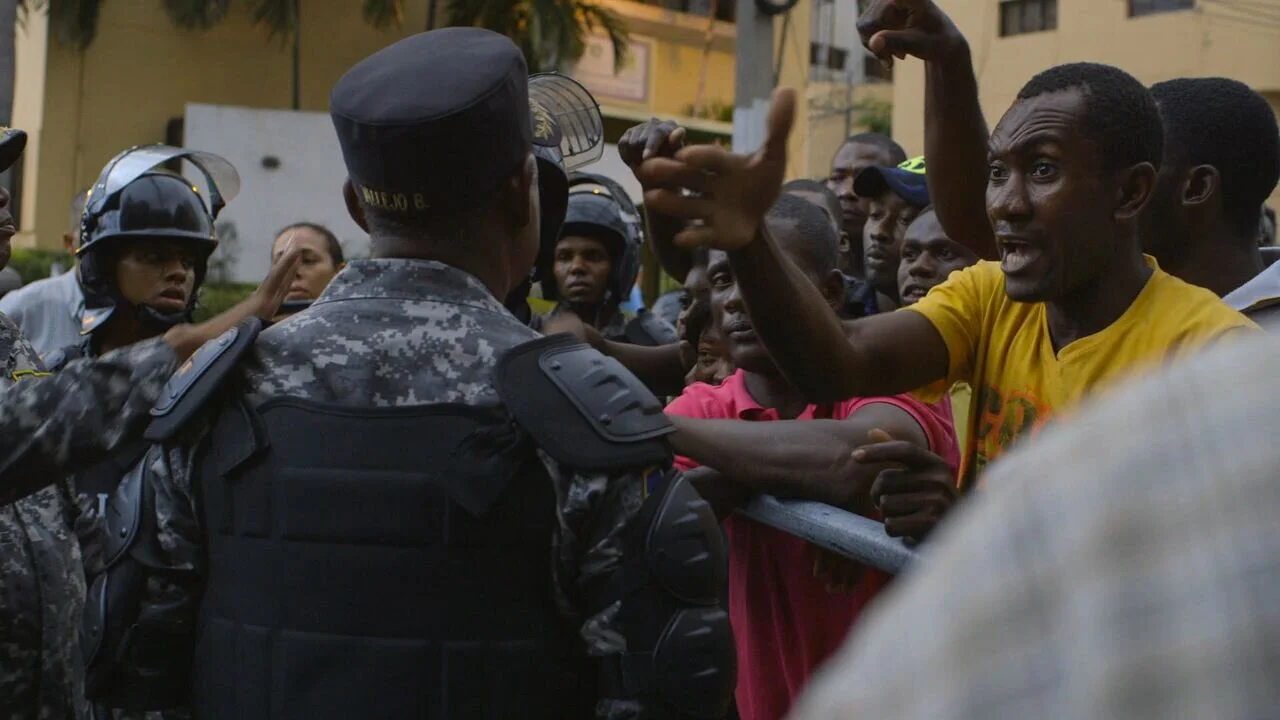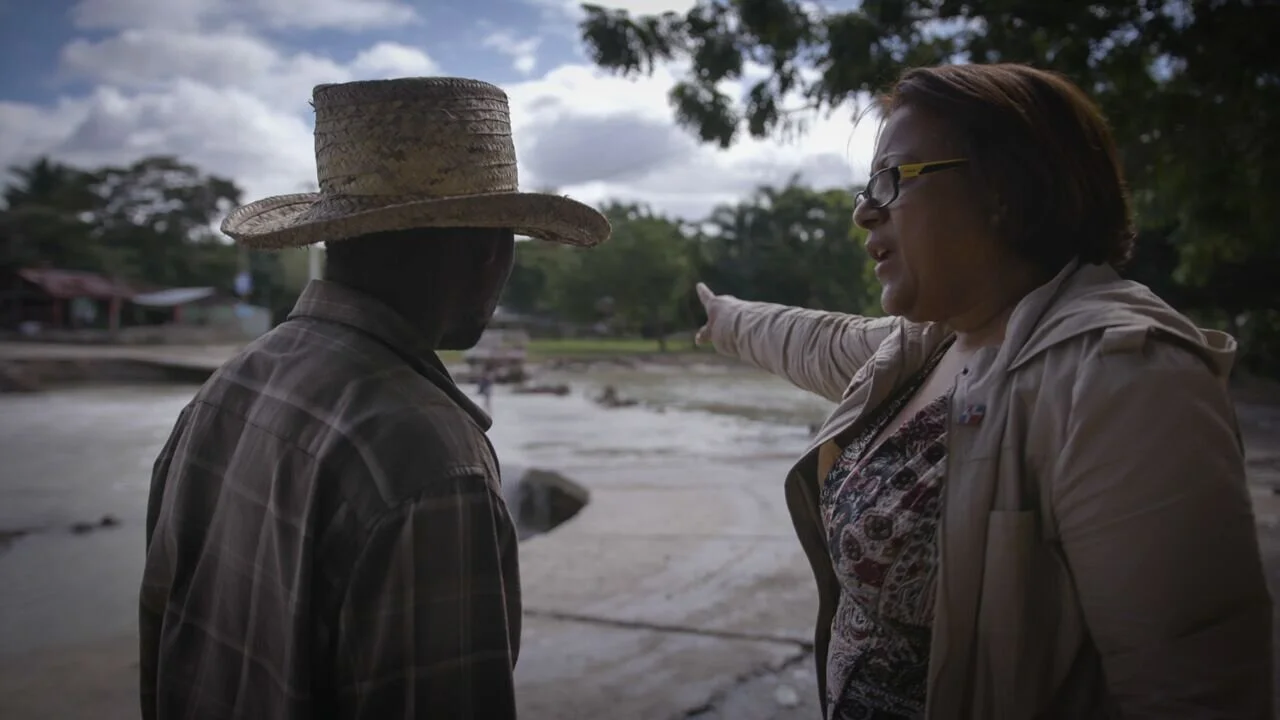Film Review: STATELESS
© STATELESS
By Belle McIntyre
There are two threads running through this fascinating, eye-opening examination of institutional racism, nationalism and genocide in the Dominican Republic. It is important to know that The Dominican Republic shares the island Hispañola with Haiti. They were originally the same people, slaves brought from Africa by the French in Haiti and by the Spanish in DR. They took on the language of their respective colonial powers and existed side by side but separate for many generations. The borders between the countries were porous and there was intermixing.
© STATELESS
What has happened in the 20th century is not unfamiliar. The lack of work, corrupt governance and poor living conditions in Haiti and caused many Haitians to migrate across the border to the far more prosperous DR. It was not a problem since there was much available work in the sugar cane fields. However in 1937, under the rule of the brutal dictator Rafael Trujillo, there was widespread dissatisfaction with government. Trujillo used the time-tested diversion technique of scapegoating. He began demonizing the presence of Haitians as the source of every problem in the country. His solution was genocide. He began a campaign to purge the country (code for “whiten”). To this end, his military slaughtered 20,00 to 30,000 Haitians based solely on skin color.
© STATELESS
Now in 2013, an elected President carries on the tradition with a more legitimate-looking tactic. He revoked citizenship of all Haitians and Dominicans of Haitian descent retroactively to 1929, leaving 200,000 people stateless. They have no rights or protections in DR but they cannot go back to Haiti without their papers. It is a very sophisticated system of hell. They are subjected to the same ignorant, tribal, petty humiliations where racism is encouraged. Their ability to make a living is extremely limited.
© STATELESS
The film follows two story lines. One is a tale told from the past, of a young girl Moraime running from the slaughter of her parents and hoping she will be able to get home to Haiti. She escapes by river. Her story, from the 1937 period is shot in a dreamy nostalgic style. Moraime does not make it. But she becomes a local legendary water spirit who protects children. It is interwoven with the larger contemporary look at the activist/politician Rosa Iris, born in DR, with Haitian ancestry.
© STATELESS
She is well-educated and fiercely dedicated to helping her “stateless” compatriots find some resolution to their non-status status. The system is tightly-woven with few spaces to find a way to fit through. It looks like a losing battle, but Rosa fights on, even going so far as to run for Congress which is the most rigged election you can imagine. By the film’s end she has revealed in very specific ways how punitive it is. It should make your blood boil. Rosa is still fighting the fight but the threats to her family’s safety became so severe that she had to leave. She sought and received amnesty in the US. I have to say that shocked me. Rosa is a rock star.












